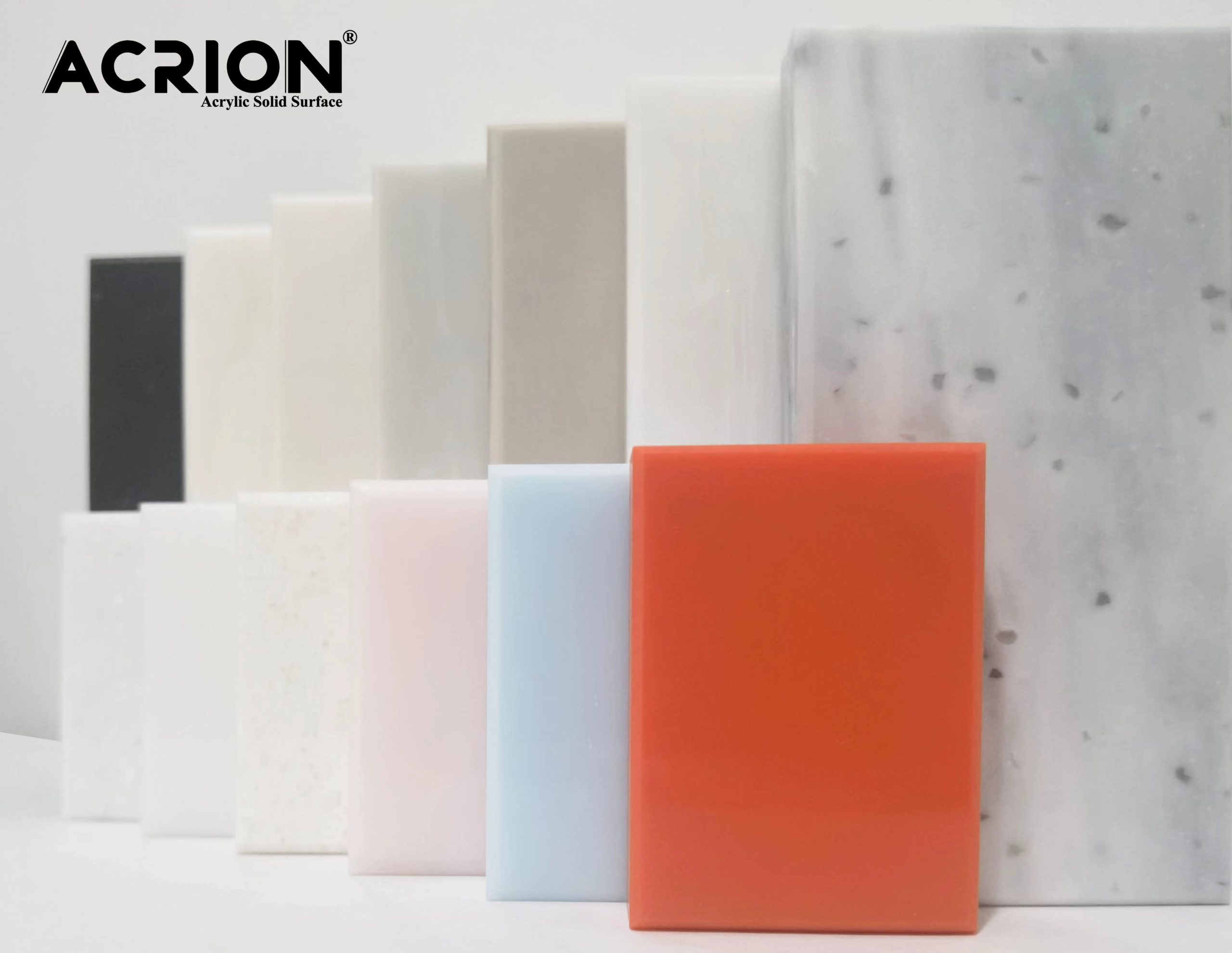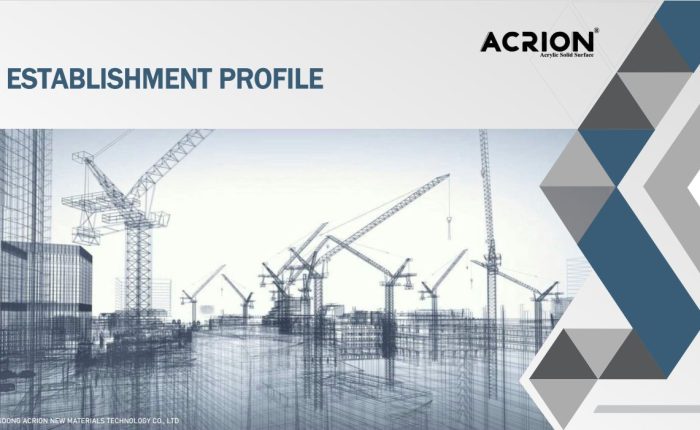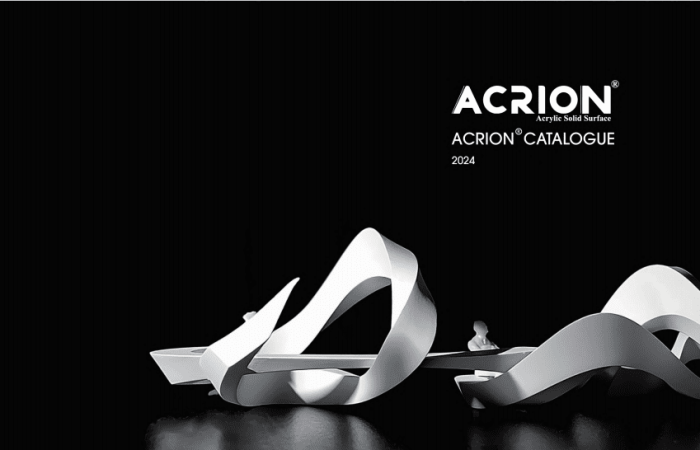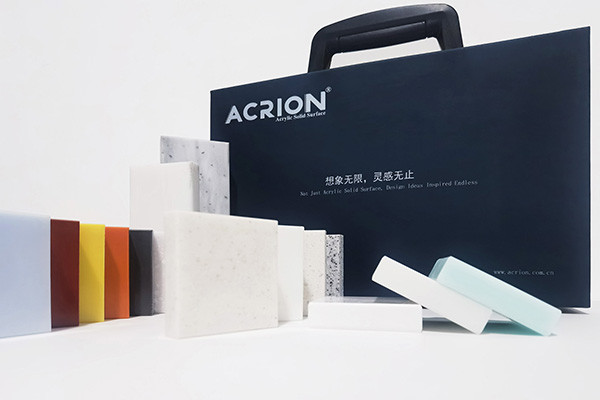ACRION Vs COMPTORS DE QUARTZ: Une comparaison complète pour les performances à long terme
Lors de la sélection de comptoirs pour les cuisines ou les salles de bains, les propriétaires pèsent souvent les mérites de l'acrion et du quartz - deux matériaux synthétiques populaires connus pour la durabilité et l'attrait esthétique. Comprendre leurs caractéristiques distinctes peut vous aider à prendre une décision éclairée adaptée à votre style de vie et à vos préférences de conception.
Composition et processus de fabrication des matériaux
ACRION: Le pionnier des matériaux de surface solides
L'acrion, inventée dans les années 1960, est un matériau de surface solide composé de polymère acrylique et de minéraux naturels. Sa structure homogène permet une intégration transparente des éviers et des dosserets, créant une apparence continue et continue. Le processus de fabrication permet la personnalisation en couleur et en texture, y compris des options qui imitent la pierre ou le bois naturel.
Quartz: conçu pour la résistance et la polyvalence
Les comptoirs en quartz sont conçus de 90 à 95% de cristaux de quartz naturels moulus mélangés à des résines polymères et des pigments. Cette combinaison se traduit par une surface non poreuse et très durable qui résiste aux rayures, aux taches et à la chaleur. Le processus de fabrication permet une large gamme de couleurs et de motifs, y compris des conceptions qui reproduisent le marbre ou le granit.
Durabilité et résistance à l'usure quotidienne
Acrion: flexible mais sujette aux rayures
Acrion est modérément durable mais plus sensible aux rayures et aux coupes par rapport au quartz. Bien qu'il puisse résister à une utilisation quotidienne, des objets tranchants ou des impacts lourds peuvent laisser des marques. Cependant, Acrion est réparable - les rayures Minor peuvent souvent être polies avec du papier de verre, restaurant sa finition d'origine.
Quartz: exceptionnellement dur et peu maintenance
Le quartz se classe à la durabilité en raison de sa composition minérale. Il est très résistant aux rayures, aux frites et aux fissures, ce qui le rend idéal pour les cuisines occupées. De plus, le quartz est non poreux, empêchant la croissance des bactéries et élimine le besoin de scellement. Sa résistance à la chaleur est également notable, bien que des tirets soient recommandés pour des pots et des casseroles extrêmement chauds.
Appel esthétique et flexibilité de conception
ACRION: sans couture et personnalisable
La surface solide d'Acrion permet des coutures invisibles, créant un look élégant et unifié. Il peut être moulé en courbes ou intégrés avec des éviers pour une conception fluide. Alors que Acrion offre une variété de couleurs, ses motifs sont généralement plus subtils et uniformes par rapport au quartz.
Quartz: apparence de pierre réaliste et couleurs vibrantes
Le quartz excelle dans la réplication de la beauté naturelle de la pierre, avec des options allant de la veine en marbre aux modèles audacieux et contemporains. Sa coloration cohérente assure l'uniformité sur les grandes surfaces, un avantage clé pour les îlots de cuisine vastes ou les installations de comptoir.
Exigences de maintenance à long terme
Acrion: polissage régulier pour une brillance durable
Acrion nécessite un entretien minimal mais bénéficie d'un polissage périodique pour maintenir son éclat. Évitez les nettoyeurs abrasifs, qui peuvent émousser la surface au fil du temps. Au lieu de cela, utilisez un détergent doux et un chiffon doux pour le nettoyage quotidien. Pour les taches plus profondes, une pâte de nettoyage non abrasive peut être appliquée.
Quartz: entretien sans effort avec nettoyage de routine
La nature non poreuse de Quartz rend exceptionnellement facile à nettoyer. Une simple lingette avec du savon et de l'eau est généralement suffisante pour éliminer la saleté et la crasse. Contrairement à la pierre naturelle, le quartz ne nécessite pas d'étanchéité ou de traitements spéciaux, ce qui réduit les coûts d'entretien à long terme.
Impact environnemental et durabilité
ACRION: Recyclable et basse émission
Acrion est fabriquée avec la durabilité à l'esprit, incorporant des matériaux recyclés dans la mesure du possible. Il est également certifié Greenguard pour les faibles émissions chimiques, contribuant à une qualité de l'air intérieur plus sain. À la fin de sa vie, Acrion peut être recyclé dans de nouveaux produits.
Quartz: durable et économe en ressources
La longévité du quartz réduit le besoin de remplacements fréquents, minimisant les déchets. Bien que sa production implique des processus à forte intensité énergétique, l'utilisation de abondants quartz naturels et de contenu recyclé dans certaines formulations compense les préoccupations environnementales. De plus, la durabilité du quartz garantit qu'elle reste fonctionnelle pendant des décennies.
Adébabilité pour différentes applications
ACRION: Idéal pour les conceptions courbes et les fonctionnalités intégrées
La flexibilité de l'acrion le rend parfait pour les conceptions personnalisées, telles que les comptoirs courbes ou les éviers sans couture. C'est également un choix populaire pour les vanités de salle de bain et le revêtement mural en raison de sa résistance à l'humidité et de sa facilité de nettoyage.
Quartz: polyvalent et performant
La résistance et la résistance à la chaleur du quartz le rendent adapté aux applications intérieures et extérieures, y compris des comptoirs de cuisine, des hauts à barres et même des entourages de cheminée. Sa large gamme de couleurs et de motifs garantit qu'il complète tout style de conception, du traditionnel au moderne.



